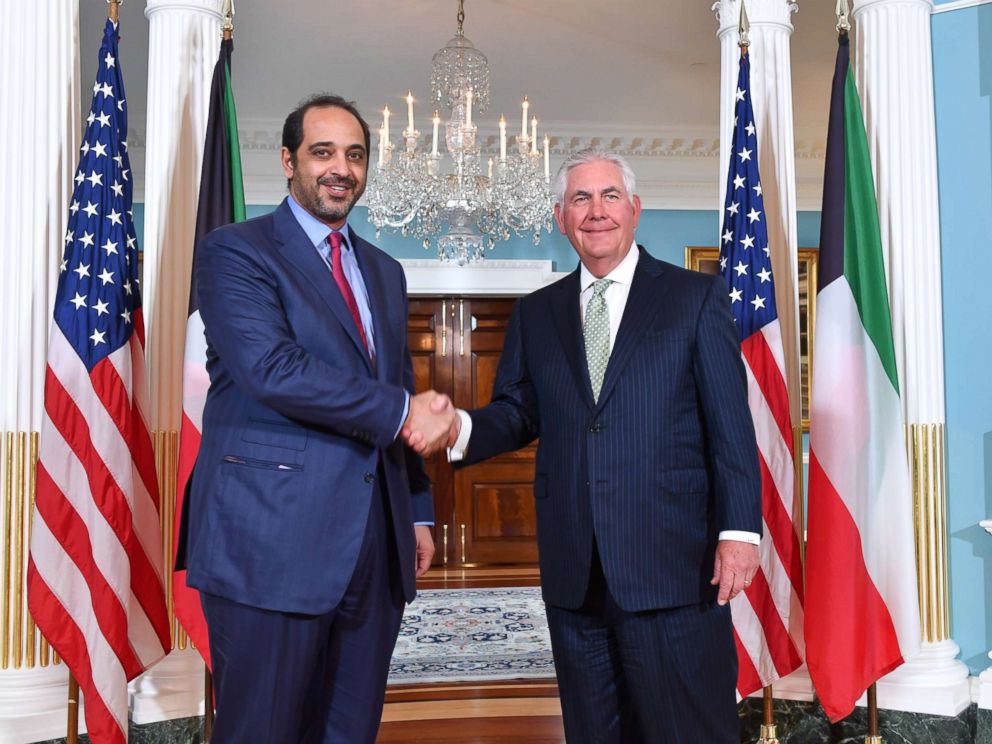London, Washington, Dammam – Qatar could face more sanctions, including its ouster from the Gulf Cooperation Council, according to Gulf diplomatic sources.
Gulf states are currently looking to impose a list of trade sanctions that would target states and companies dealing with Qatar, in order to escalate pressure on Doha and force it to implement the list of 13 demands submitted by Saudi Arabia, the UAE, Egypt and Bahrain.
In parallel, diplomatic sources revealed that the US was joining efforts to set up a mechanism to supervise and monitor financial transfers from Doha and to hand over to the Qatari government all the information and data on groups or persons who are accused of terrorism.
Meanwhile, Kuwait, which has recently dispatched a high-ranking official to Washington to meet with Secretary of State Rex Tillerson, is trying to work with the American side on finding the best solutions to guarantee Doha’s compliance with the list of Gulf demands.
Washington has become an arena for active diplomatic efforts, with the presence of Saudi Foreign Affairs Minister Adel al-Jubeir, his Qatari counterpart Mohammed bin Abdulrahman Al Thani and Kuwaiti State Minister for Cabinet Affairs and Acting Information Minister Sheikh Abdullah al-Mubarak Al Sabah.
Tillerson met with the three officials earlier this week at the State Department.
Few days following the assertion that Doha would not negotiate over the list of demands, the Qatari foreign minister retracted his stance, telling reporters after his meeting with Tillerson: “We have agreed that the State of Qatar should engage in constructive dialogue with the concerned parties if it wanted to reach a solution and overcome the crisis.”
He added: “We have heard that these demands are non-negotiable, but this violates the principles of international relations”.
For his part, Jubeir said that the four countries were not ready to any compromise over the crisis with Qatar.
Addressing reporters in Washington, the Saudi foreign minister said that there would not be any negotiations with Doha over the list of demands, and that it was up to Qatar to stop supporting terrorism and extremism.
On Wednesday, Gulf countries hinted at “isolating” Qatar from the GCC.
UAE Ambassador to Moscow Omar Ghobash said that Gulf Arab states were considering new sanctions against Qatar and could ask their trading partners to choose between working with them or Doha.
In an interview with The Guardian, Ghobash said: “There are certain economic sanctions that we can take which are being considered right now.”
He added that the expulsion of Qatar from the GCC was “not the only sanction available”.
UAE State Minister for Foreign Affairs Anwar Gargash said on his Twitter account: “We have long suffered [Qatar’s] conspiracy against our stability and witnessed its support for ideologies that aim to sow chaos in the Arab world. Enough. Return to reason”.
Commenting on the meeting between Tillerson and the Kuwaiti minister, US State Department spokesperson Heather Nauert said in a statement that the two leaders “reaffirmed the need for all parties to exercise restraint to allow for productive diplomatic discussions.”
“The Secretary urged the parties to remain open to negotiation as the best way to resolve the dispute. The leaders agreed that stopping terrorism and confronting extremism should be our shared and primary focus,” the statement added.
